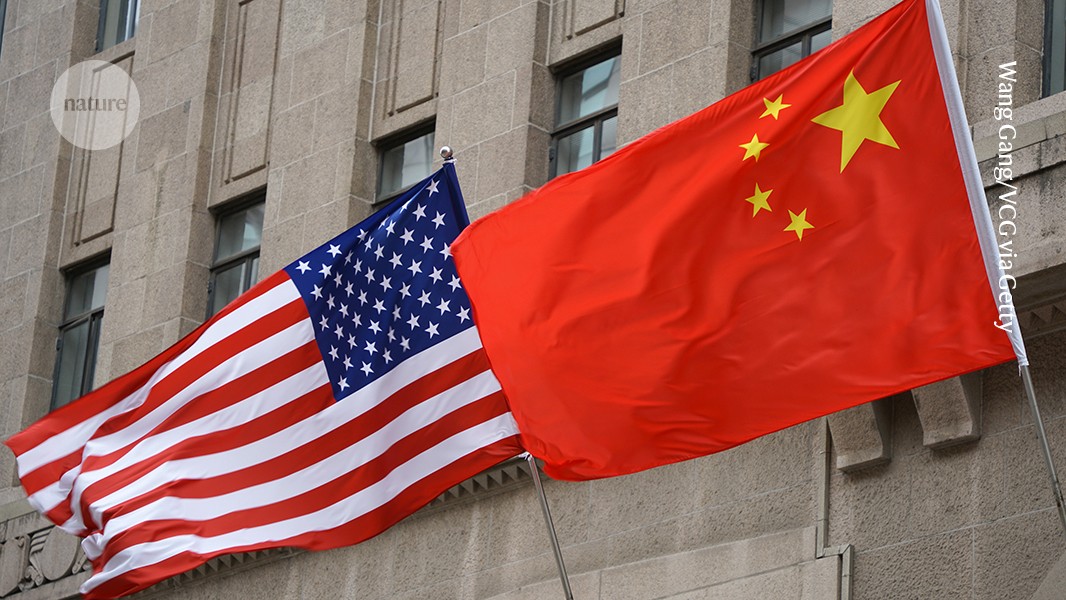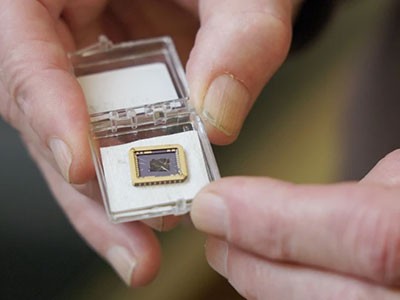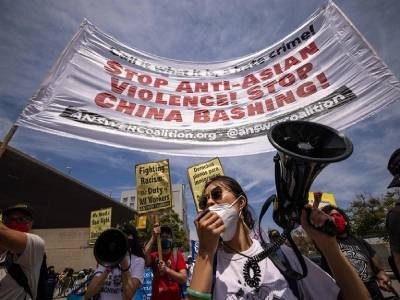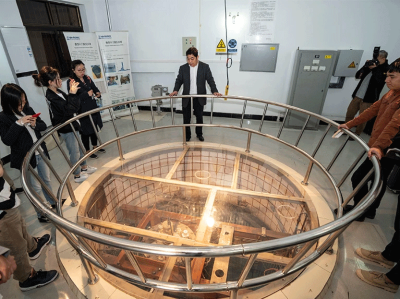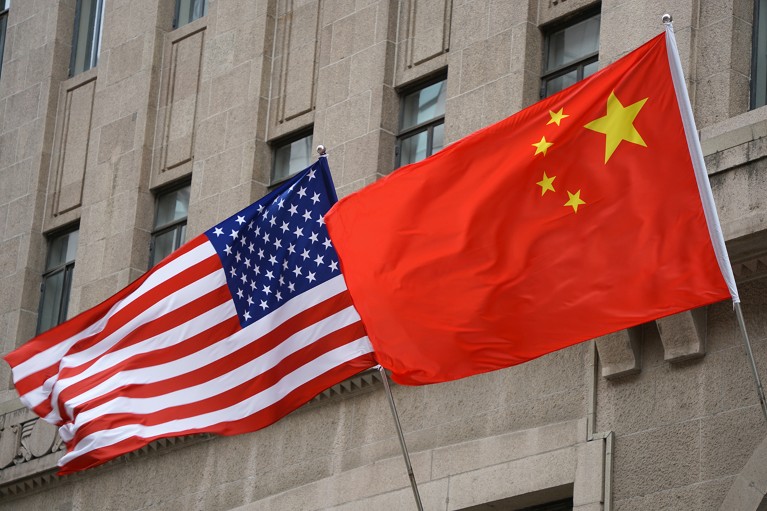
The US Department of State says that the United States and China are still in communication about a key science pact between the two nations.Credit: Wang Gang/VCG via Getty
The United States and China have missed the deadline to renew a pact that governs their cooperation in science and technology. But they are close to agreeing on a way forwards, Nature has learnt.
China–US research collaborations are in decline — this is bad news for everyone
Over the past year, the two nations have been negotiating the terms and conditions of a decades-old pact, normally renewed every five years, that expired on 27 August 2023. The pact is symbolic in that it doesn’t provide any funding. But researchers in the United States and China say it is crucial because it lays the groundwork for building strong research collaborations between the two nations, which have so far announced two 6-month extensions to complete negotiations. But the latest deadline, 27 August, has come and gone without them taking any action.
A spokesperson for the US Department of State told Nature, however, that the two nations remain in communication.
Sources familiar with the negotiations, but not directly involved, say that despite tensions between the two countries, signs point to a renewal — but the pact is likely to become more limited in scope. They also think that the upcoming US presidential election could be factoring into the delay, given that cooperation with China is a politically sensitive issue that could affect voting.
“An agreement is getting near. They are working out the final language,” says Denis Simon, a non-resident fellow at the Quincy Institute for Responsible Statecraft, a foreign policy think-tank in Washington DC.
“China is willing to renew the US–China pact to facilitate bilateral collaboration,” says Tang Li, a science- and innovation-policy researcher at Fudan University in Shanghai, China.
A cooling of relations
The original agreement was signed on 31 January 1979 by then-US-president Jimmy Carter and China’s premier at the time, Deng Xiaoping, to thaw diplomatic relations. Since the pact was last renewed in 2018, interactions between the two nations have soured, however. That year, the administration of then-US-president Donald Trump launched a programme called the China Initiative, aimed at preventing foreign spies from infiltrating US research laboratories and technology-based businesses. In June last year, lawmakers on a US House of Representatives committee who are members of Trump’s political party, the Republicans, called on US secretary of state Antony Blinken to scrap the pact altogether, alleging that it poses a threat to national security. Last month, both Democratic and Republican lawmakers in the House proposed a bill that, if passed, would require the Department of State to notify the US Congress ahead of time if it is planning to renew or extend the pact, justify the reasons for it and details any risks.
China Initiative’s shadow looms large for US scientists
If renewed, the pact will probably reflect this cooling of relations, including limiting collaboration to global-challenge research areas such as climate change, public health and food security, Simon says. Marina Zhang, an innovation researcher who focuses on China at the University of Technology Sydney in Australia, agrees, adding that the two nations might also find common ground in renewable-energy research. But in competitive areas in which the United States worries that China might take advantage of US know-how — such as quantum computing, artificial intelligence and advanced semiconductor-chip technology — Zhang expects collaborations to be subject to restrictions.
Some observers think that the United States wants more clarity added regarding access, ownership and sharing of data generated during research collaborations. And it wants the personal safety of its scientists who travel to China for collaborative projects to be assured, Simon says.
“China wants to maintain status quo,” Zhang says. “But China will not totally give into any terms proposed by the United States, so it will be a hard negotiation.”
A looming election
A spokesperson for the US Department of State said in a statement to Nature that the agency is negotiating on behalf of the US government to “modernize” the agreement “to reflect the current status of the bilateral relationship”.
Why it would be a dangerous folly to end US–China science pact
Deborah Seligsohn, a specialist in US–China relations at Villanova University in Pennsylvania, is pleased that the administration of US President Joe Biden has listened to scientists saying that the agreement is important, and is continuing negotiations. It is key, she says, that the two sides can limit collaboration under the agreement to fields that both feel comfortable with.
Sources who spoke to Nature think that any announcement about the pact probably won’t come until after the upcoming US presidential election in November. That’s because both US political parties — despite their differences on many issues — agree that China, which has become a global leader in science and technology, is a threat to US prowess, Li says. “The Biden administration is cautious about locking in any deal with China at this time,” she says, because it is not an issue that is likely to garner votes for Biden’s party, the Democrats.
With Biden no longer running for president, it is unclear whether a new administration will change course on the pact.
Trump, the Republican candidate for president, has been antagonistic towards China. But his administration did renew the agreement in 2018. Kamala Harris, the Democratic candidate and current US vice-president, has been part of the Biden administration, which ended the China Initiative in 2022, but which has also continued exerting competitive pressure on the country through tariffs and other measures. Tim Walz, governor of Minnesota and Harris’s running mate, has a history of engagement with China, although he would not have a big foreign-policy role as vice-president, Simon says.
“Who knows what will happen,” Seligsohn says.


